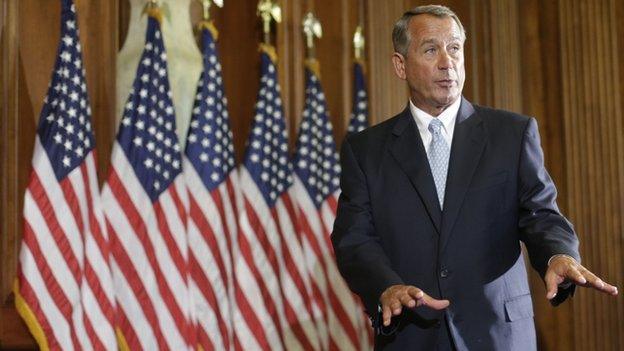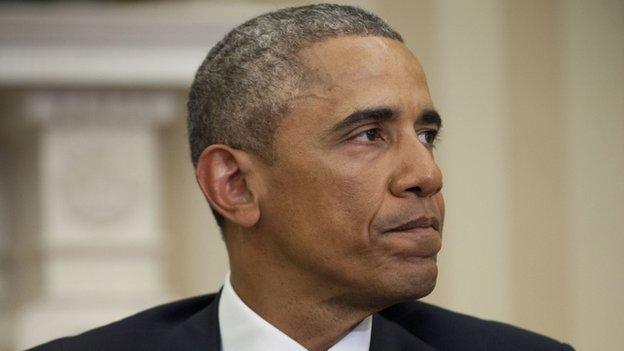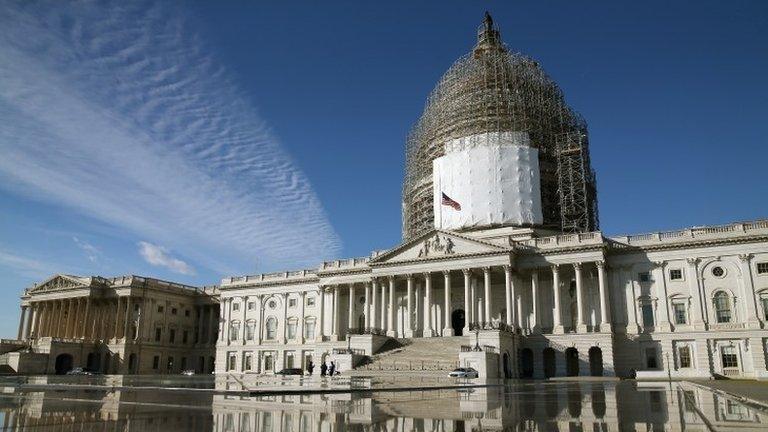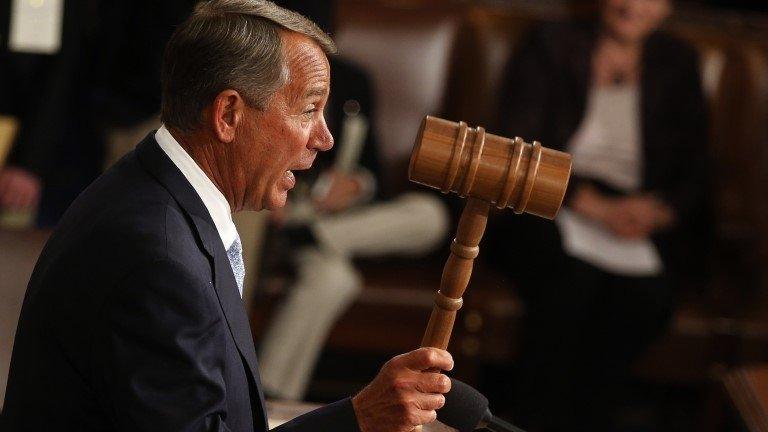US politics: Opening of Congress and prospects for 2015
- Published

John Boehner, speaker of the House of Representatives, faced opposition from his own party
This week saw a key event in the US political calendar - the opening of Congress.
For lawmakers in Washington, it is a chance to get a hair cut, buy a new suit and shake hands with the vice-president at the start of term.
Yet the new season heralds little change in the way politics is done.
Snow can have a powerful effect on a city.
When a veneer of white coated Washington this week, it softened the sound of passing vehicles along the city's main avenues.
The creamy white edifice and large scaffolded dome of the Capitol building blurred into the milky sky behind it.
This chill brought parts of the city to a temporary standstill.
It slowed down the march of politicians to their offices, in a way that seemed to foretell a season of political gridlock.
The onset of the winter weather has come just as lawmakers began the new political session on Capitol Hill.
Republican men and women - winners in last November's mid-term elections - were welcomed into the House and Senate.
And, as at the start of every term, a register is taken.
New senators and members sign their name in a special book and get to keep the pen.
New "freshman" Republicans smiled broadly as their turns came.
For the first time in eight years they have a majority in both chambers.
It means they have the opportunity to draw up - and pass - legislation with relative ease, putting them in the political driving seat.
Obstacles ahead
But there are two reasons why that is unlikely to be plain sailing.
The first is that President Obama intends to veto many of the laws Republicans are proposing.
The other is that the Republicans could be their own worst enemies.
Take a look at John Boehner.
The veteran conservative has just been re-elected as speaker of the House of Representatives.
It was not as easy as it should have been.

President Obama may use his veto against his Republican opponents
In an act he is bound to see as treachery, 25 of his own party members voted against him - many of them Tea Party sympathisers whose political ambitions lie in unravelling President Obama's liberal agenda.
Not only do they despise the idea of gay marriage, affordable health care and visas for illegal immigrants, but they also see their own speaker as too soft.
They - together with more mainstream conservatives - want tax reform and trade policies that will boost US economic prosperity.
By the way, Boehner didn't come off as bruised as his Democratic opponent in the senate, Harry Reid.
The 72-year-old minority leader - who is a former boxer - appeared in his own video message wearing a dowdy-looking cardigan and an eye patch.
He said he had fallen at home.
The scar, he said, wasn't the result of a fight - but nevertheless he was not prepared to give up political battles on behalf of America's poor.
All this makes for a likely showdown ahead of 2016, when the next presidential election is to be held.
And with a White House intent on using its executive authority and Republicans treading carefully to appease their more radical elements, the gridlock could persist long after the snow has melted.
- Published6 January 2015

- Published6 January 2015
- Published6 January 2015
